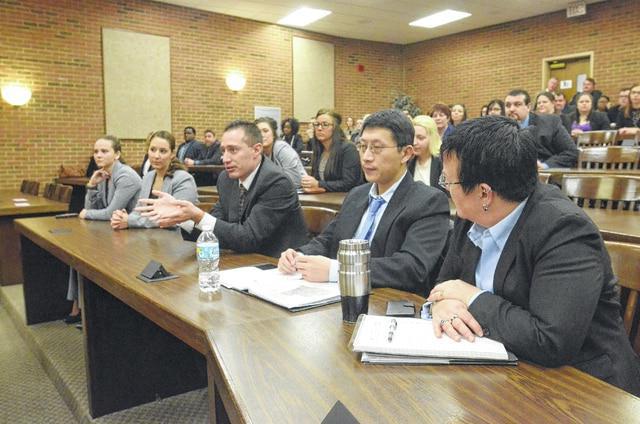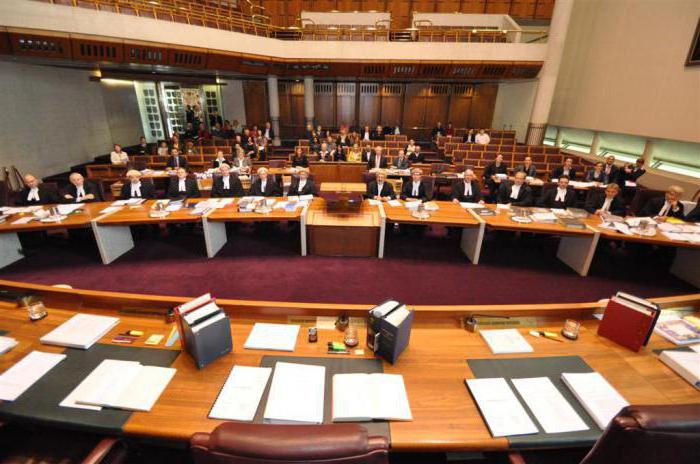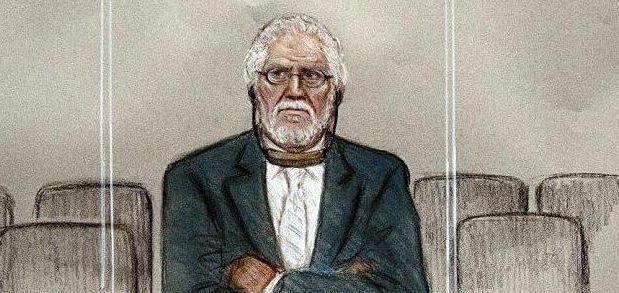The defendant's failure to appear in court in a civil case is a common problem that participants in trials face. In addition to irritation, it leads to a delay in resolving the dispute. What to do?
Mandatory attendance at the meeting
The presence of the participants in the case, especially the plaintiff and defendant, provides them with the opportunity to defend their position. The agenda is sent in advance, and, therefore, the party has the opportunity to pre-inform about the inability to appear on the appointed day.

If the defendant in a civil case does not appear in court, there are two options for the development of events:
- The party reports that it is impossible to attend the trial, and it is being postponed.
- The party does not respond to the court’s challenge, and the case is decided without her participation.
The failure to appear in court of a civil defendant must be reasonable and respectful from the point of view of the court. For example, the subpoena arrived too late, and there was no time to take leave from work and (or) to seek legal assistance.
How to act on the defendant
It makes no sense to report your failure to appear in court by phone; it is better to write a written statement stating your circumstances. The document matters, unlike words that are not recorded anywhere. Especially since court officers run into dozens of people every day, and someone’s call will easily be lost in the memory of the secretary. Even if the call is not forgotten, it is still considered non-appearance of the defendant in civil court without a good reason.

And a written statement must be accompanied by certificates and other documents that can confirm the validity of absence in court.
What are the further actions of the judge
At the designated time, the meeting opens. If other persons have not appeared except the defendant, the meeting is adjourned automatically. New summons are sent, and it becomes clear whether there are any notifications on delivery of documents sent earlier in the file.
If the documents were not received, the reasons are determined. For example, whether the paper was sent to the correct address. Sometimes they are simply lost even in court, and not just at the post office, or do not have time to deliver on time.

The absence of any information about the receipt of documents or the refusal to receive them obliges the judge to postpone the proceedings until it becomes clear why the summons is not delivered.
Sometimes the whereabouts of the defendant is unknown, then a request is sent to the local chamber of lawyers so that a defender of the interests of such a person will be appointed. Thus, a balance is maintained between the interests of the participants in the process, and the defendant's failure to appear in court in a civil case does not prevent further consideration of the dispute.
Why it is undesirable to ignore subpoenas
Filing a lawsuit may be the only way to resolve the dispute, albeit by force. The appearance in court is the duty of the party. The judge must report where and when the meeting is taking place. If the plaintiff and the defendant are not, the law provides for certain consequences of a negative nature.

The case of the plaintiff at the second non-appearance in a row automatically ends, and will have to start all over again. If the statute of limitations is missed, this may not be possible.
Failure to appear in court of a defendant in a civil case may lead to the fact that the case will be resolved completely without his participation.
If the representative did not appear
A representative is a person who has already been submitted to the court in that capacity. The representative is considered either the one to whom the power of attorney is written out, or the prosecutor. This also includes parents, guardians, or caregivers.

An adult participant in the process has the right to request that the court adjourn the proceedings if his representative did not appear for a good reason. She is considered a disease or other circumstances that, for objective reason, made it impossible to appear in court. Participation in another case is not always the case when it comes to a lawyer or prosecutor.
Is a fine imposed for the failure to appear in court of a civil defendant? A pecuniary penalty of 1,000 rubles is imposed only on experts, witnesses, specialists and translators who evade court visits.
Procedural consequences
Consideration of a dispute without the participation of the defendant is allowed in two forms:
- correspondence production;
- consideration in general order, if at least one defendant appeared.
An absentee decision is made with the participation of the plaintiff only under certain conditions:
- There is evidence of receipt by the defendant of summons.
- The defendant did not request a meeting in his absence.
- There were no requests to defer consideration due to good reasons for not appearing.
The essence of the decision in absentia is that it is taken only on the basis of arguments and evidence received from the plaintiff and other participants in the process who arrived at the meeting.

After the issuance of the absentee judicial act, 7 days are given for filing an application for cancellation to the judge, who accepted it from the moment the defendant received the documents. If this deadline is missed, an appeal is already filed.
By the way, judges often overturn their decisions in absentia.
For failure to appear in court in the civil case of the defendant, liability is provided for in the form of a dispute without him, and thereby his procedural rights are limited.
But what if the judge again and again unreasonably postpones the proceedings? You can either pre-write a request for a meeting in the absence of the defendant, or send a written statement to the chairman of the court to expedite the trial.
Assessment of circumstances
The failure to appear in court of the civil defendant for good reason obliges you to postpone the consideration of the dispute. In other situations, the right is given to postpone the meeting, but it is impossible to delay the process indefinitely. In practice, one pass is considered tolerable. If followed by a second, the judge continues consideration without a defendant.
If there is a periodic absence within the framework of the process, the judge shall proceed from the circumstances of the case.
As a rule, everything is decided by the respondent's ability to provide new information. It’s easier to wait for the next meeting than then to risk getting a decision canceled in the appellate court. Skipping a case is a lesser evil.
Judges can easily make decisions without a defendant in credit disputes, recognition of rights to property, and when the court acts as a means to draw up documents for the property. In family disputes affecting children's rights, such as which parent they live with, judges behave differently.
Disease assessment
Health status is often referred to in legislation as a serious factor. This is confirmed by the sick leave and an extract from the medical record.
Again, not every disease gives the right to skip court hearings. A person must be sick or infectious diseases, or be in a hospital. The objective impossibility of leaving the house or hospital matters.
If it is a mild cold, not documented, it is not considered an argument. The same applies to any other health difficulties. Thus, the non-appearance in court of the defendant in a civil case due to illness still needs to be proved.